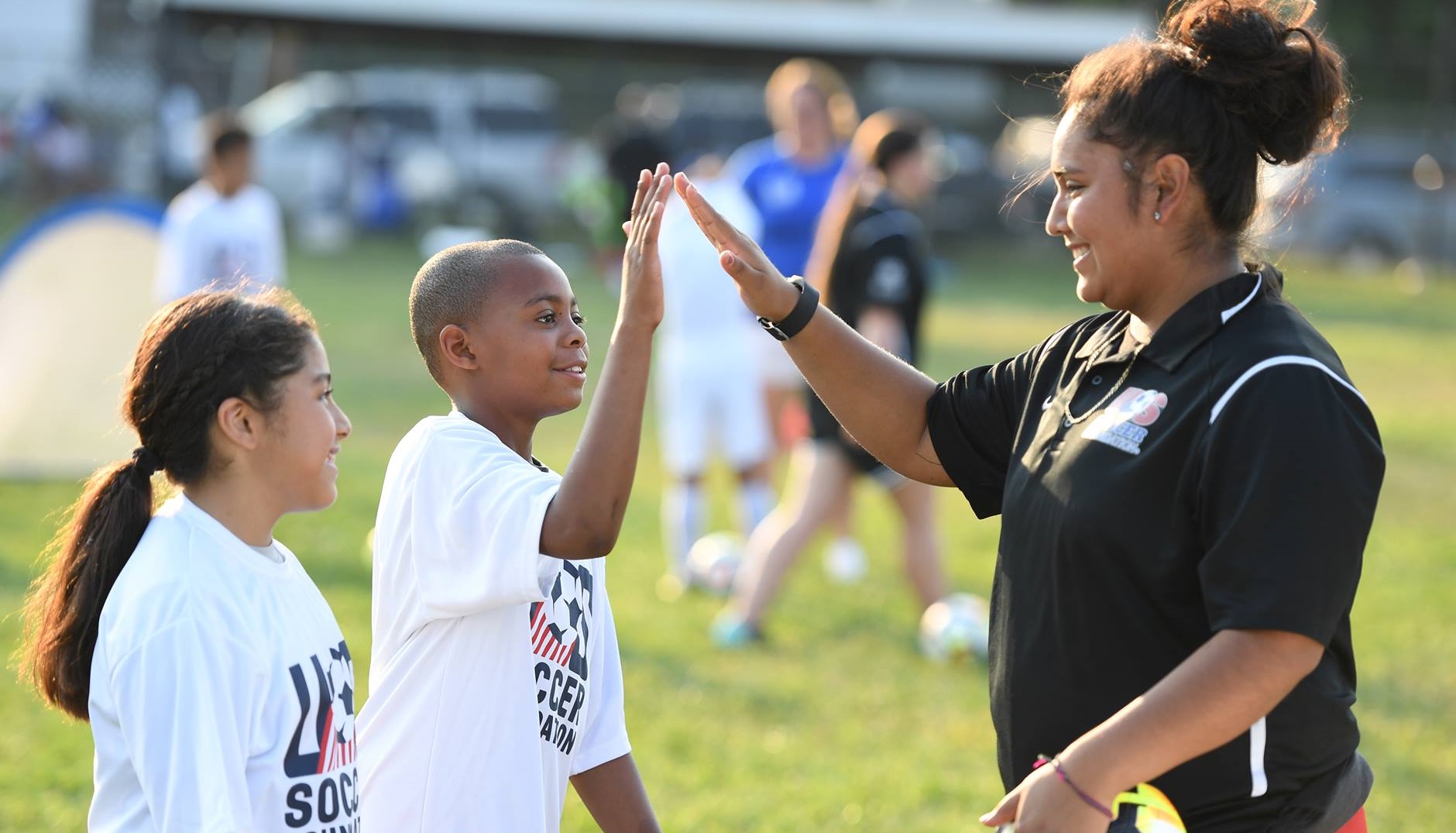Insights Call to Action
Connect Research to Real-World Programs
To make research more useful in everyday coaching, researchers and practitioners need to work together more closely. Strong partnerships can turn data into action, and make it easier to design studies that are important to coaches, test ideas, and apply what works. Tools like standard evaluation methods, co-designed studies, data-sharing agreements, and clear visualizations can help bridge the gap between research and practice.
→What this looks like when we get it right: Researchers and sport organizations collaborate to turn evidence into useful coaching tools; real coaches help shape research questions and projects.
→Who can drive this change? Data & Research, including Higher Education Researchers and Institutes; Sport Governance; Program Operators

Why This Issue
To make research usable for coaches and organizations, we need to bridge the gap between data and practice. Research can only make a difference if it’s communicated in ways that coaches and organizations can understand and use, and if coaches and programs inform the research questions and process.
Getting Started
Build strong, collaborative partnerships. Researchers work with sports organizations to share data, and turn findings into real strategies that improve outcomes for young athletes.
Partnerships can be sustained as long-term collaborations between researchers and practitioners built on shared goals and mutual respect. In youth sport, these can create an ongoing dialogue between those who study sport and those who coach it. And they help ensure that what we learn from research shows up where it matters most – at practice, on the field, and in kids’ lives.
Prioritize sharing data efficiently. Researchers should prioritize strong, usable evaluation tools and share data in ways that can be used quickly and easily. Research cannot be impactful if there are significant delays in sharing results with programs and coaches.
When research and practice are connected, everyone benefits. Organizations get insights to grow stronger. Researchers get data that reflects lived experience. Coaches get tools that impact their reality. And most importantly, kids get better experiences in sport.
Take steps to bridge researchers and programs/coaches.
- Use standard data-sharing agreements that give scholars and program leaders better access to information that can drive innovation and lead to real-time learning;
- Sport administrators can connect researchers with coaches and program leaders to help design program evaluations can answer real world questions;
- Make research findings accessible for sports programs by using infographics, social media, websites, and friendly resources that don’t require special access
Engage youth sports leaders and coaches in study design. The people in youth sports bring deep knowledge of their environment, and their insights are critical for designing useful studies, improving access to participants, and asking the right questions. Researchers and funders must prioritize these partnerships and share findings in formats that coaches and program leaders can use.
Game Changing Content
| Item | Description |
|---|---|
|
Coach Beyond Training for Ohio school coaches |
A two-year public impact and social change effort between LiFEsports researchers and the Ohio High School Athletic Assn. |
|
Girls on the Run Research Evaluation |
Evaluation of Girls on the Run with a focus on psychosocial and behavior impact on youth participants |
|
PCA partnership with the University of Kansas |
Discussion of a partnership between PCA and the University of Kansas to train sport psychology students in positive coaching |